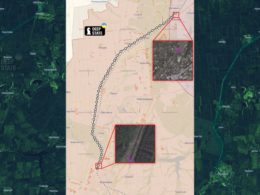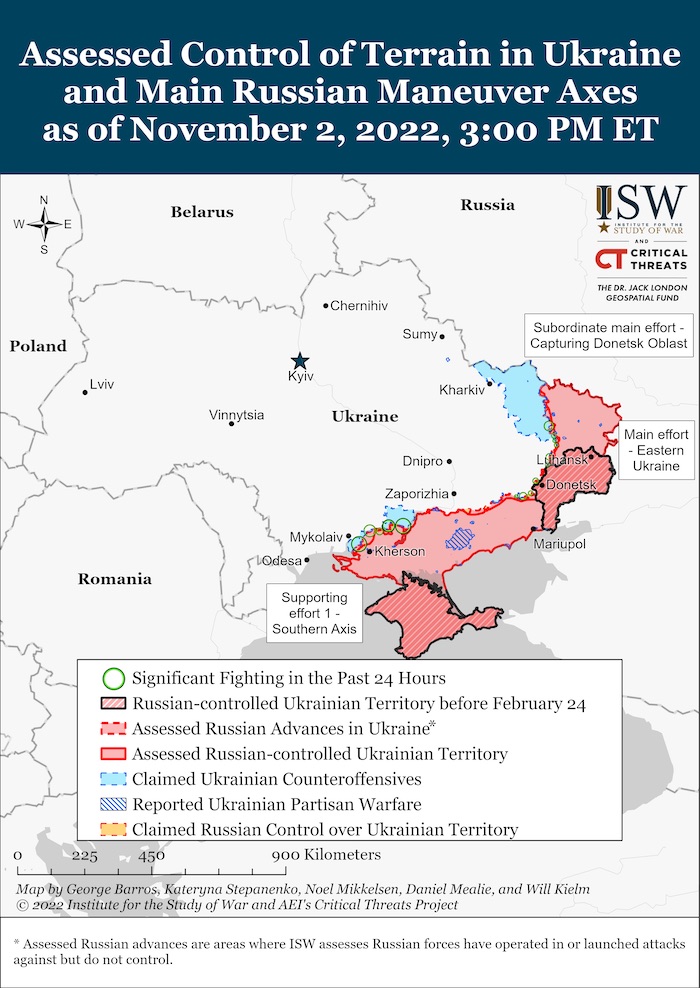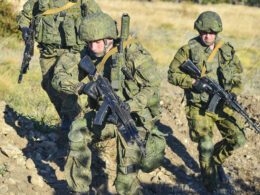Russia's President Vladimir Putin's framing of the war in Ukraine as "a struggle" between Russia and the West rather than between Russia and Ukraine indicates Putin has no intention of negotiating in good faith with Ukraine and is instead trying to convince the West to "betray Ukraine through negotiations," ISW said in its daily report.
Recently, the NYT published an article stating that “Putin signals he is open to a cease-fire in Ukraine.” ISW analyzed
the NYT article, saying that Putin may demand a temporary ceasefire as it would provide Russia with time to prepare for a new aggression against Ukraine and impede additional military aid from the West to Ukraine while debates in Western countries would be ongoing.
In a meeting with Russian troops on 1 January, Putin identified the West as Russia's “enemy” and implied that Russia is fighting in Ukraine to defeat the Western powers who want to “destroy Russian statehood,” ISW reported on 2 January. Putin claimed that "Western elites are trying to break Russia into pieces using Ukraine as a pawn." However, ISW said that Putin is falsely portraying the conflict as a confrontation between Russia and the West to mask his true goal of establishing complete Russian control over Ukraine.
"Putin does not view Ukraine as an independent actor and is thus portraying his full-scale invasion of Ukraine as a confrontation between Russian and West – deliberately misrepresenting the reality that Russia invaded Ukraine to destroy Ukraine’s sovereignty and territorial integrity," the ISW reported.
The ISW warned that Putin's narrative is aimed at paving the way for negotiations solely between Russia and Western powers about Ukraine's place in Russia's sphere of influence. Such negotiations would betray Ukraine by bargaining away its sovereignty without its participation.
"Any Western commitment to negotiations about Ukraine's future that bypass Ukraine will signal to Russia that it can impose its will upon countries that it deems to be in its sphere of influence – even countries beyond Ukraine, and potentially including Finland and Moldova," ISW said in its daily report.
Other takeaways from the ISW report:
- Ukrainian President Volodymyr Zelensky stressed Ukraine’s need for urgent Western support to protect both Ukraine and the rest of Europe in an interview with the Economist published on 1 January.
- Russian forces conducted another massive series of drone and missile strikes against deep rear areas in Ukraine between 31 December and January 2, one of which used a strike package similar to that used on 29 December and to which Ukrainian forces appear to be adapting.
- Western provision of air defense systems and missiles to Ukraine remains crucial for Ukraine as Russian forces will likely attempt to adapt to Ukrainian air defense capabilities.
- Russian society continues to reckon with the impacts of increasing anti-migrant sentiment amid Russian authorities’ ongoing efforts to systematically disenfranchise migrant communities within Russia.
- Russian forces made marginal confirmed advances along the Svatove-Kreminna line, northwest and southwest of Bakhmut, northwest of Avdiivka, and southwest of Donetsk City.
- Russian occupation authorities are restricting and likely monitoring internet communications ahead of the March 2024 presidential elections.
Read also:
- Putin wants to freeze war in Ukraine, claims NYT. Should we believe it?
- Furious Putin “orders commanders to frontline” after 74 sailors killed in Novocherkassk sinking
- British Intel: Russia likely change approach in its long-range strikes on Ukraine
- Death toll from Russia’s late December missile strike on Kyiv rises to 29





